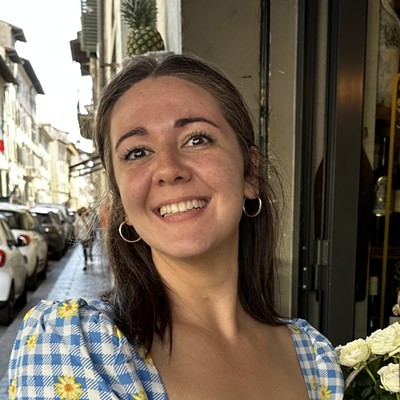Growing up queer in 1980s and ‘90s Florida was no easy feat. Filmmaker Kareem Tabsch remembers it vividly. The 1977 repeal of one infamous ordinance was the catalyst for state-sanctioned discrimination that reverberated throughout his early life.
In 1977, the Dade County Commission of Miami outlawed the discrimination of gays and lesbians in housing and the workplace. In response, singer and pageant queen Anita Bryant leveraged her famous face and voice to launch Save Our Children, an anti-gay campaign that aimed to repeal the anti-discriminatory ordinance. She succeeded in her efforts.
This slice of Miami history inspired Tabsch’s latest documentary project, aptly titled Save Our Children. Announced this week, the film is in pre-production via Trojan Horse Media, the production company founded by Tabsch and his filmmaking partner Alex Fumero, the team behind the wildly popular Mucho Mucho Amor: The Legend of Walter Mercado. The new documentary will feature archival footage and interviews with some key players from the ‘70s and notable contemporary LGBTQ activists.
"Younger generations of LGBT folks or even progressive folks weren’t familiar with this kind of moment in our history," says Tabsch of the Bryant era. "It was a huge moment where Miami really kind of inspired and shaped the national dialogue around the queer community."
Tabsch has always felt the conversation around Bryant and her fight against the LGBTQ+ community, particularly in Florida, is under-discussed. He says he's been ruminating on the idea of a documentary tracing that moment to the current political state of affairs in Florida for some time. After all, this history is not too far in the rearview — Bryant died less than two months ago, in December 2024. And the parallels to Florida's current-day culture wars against everything from books to trans rights ring loudly.
"We literally see an attack on the queer community and very much so on the trans community happening in real-time," says Tabsch. "Even though it’s 2025, there’s a far-right agenda that is trying to reshape the future, and, I believe, trying to reshape the future without us. So [this story] feels as relevant today as it did five decades ago."
"This is the most political film I’ve ever made," he adds, taking a deep pause before he continues. "In many ways, this is the most personal thing I’ve ever done because I grew up with the weight of that law that Anita Bryant helped pass."
The ordinance that once protected the queer community from discrimination in Miami-Dade County wasn’t reinstated until 1998 — two decades after Bryant's campaign succeeded in repealing it. A young Tabsch even worked the phone banks in the late '90s in support of its reinstatement.
"One of the things that 1977 campaign did was that it really forced the issue of gay rights onto the national platform in a way that it had never been before," says the director.
The Save Our Children movement, run by Bryant and her fellow Christian anti-gay crusaders, began in Florida, but it shaped the national conversation around queer rights for decades to come.
One of the key slogans of Bryant's anti-gay campaign was, "Homosexuals cannot reproduce, so they must recruit." It fueled fears about queer people preying upon children specifically. Fast-forward five decades, and it's not hard to see how those same logical foundations were used to justify Gov. Ron DeSantis's so-called "Don’t Say Gay" bill.
"The film is going to be a direct line that we're going to draw from that campaign in 1977 through the present day," says Tabsch. "That moment with Anita, the Save Our Children campaign, really kind of informed the anti-LGBT rhetoric that we still see, unfortunately, today in our news. Although it’s rooted in the past, it’s very much connected and relevant in the present."

Audio By Carbonatix
[
{
"name": "GPT - Billboard - Slot Inline - Content - Labeled - No Desktop",
"component": "22004575",
"insertPoint": "2",
"requiredCountToDisplay": "2"
},{
"name": "STN Player - Float - Mobile Only ",
"component": "22595215",
"insertPoint": "2",
"requiredCountToDisplay": "2"
},{
"name": "Editor Picks",
"component": "17482312",
"insertPoint": "4",
"requiredCountToDisplay": "1"
},{
"name": "Inline Links",
"component": "18711090",
"insertPoint": "8th",
"startingPoint": 8,
"requiredCountToDisplay": "7",
"maxInsertions": 25
},{
"name": "GPT - Rectangle 2x - Slot Auto-select - Labeled",
"component": "22004615",
"insertPoint": "8th",
"startingPoint": 8,
"requiredCountToDisplay": "7",
"maxInsertions": 25
},{
"name": "Inline Links",
"component": "18711090",
"insertPoint": "8th",
"startingPoint": 12,
"requiredCountToDisplay": "11",
"maxInsertions": 25
},{
"name": "GPT - Leaderboard to Tower - Slot Auto-select - Labeled",
"component": "17720761",
"insertPoint": "8th",
"startingPoint": 12,
"requiredCountToDisplay": "11",
"maxInsertions": 25
}
]








